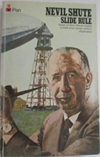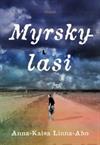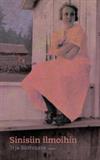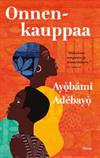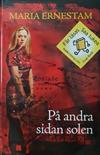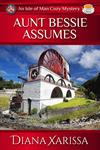
Every Book Its Reader : The Power of the Printed Word to Stir the World
1 journaler for this copy...
Book Description:
Inspired by a landmark exhibition mounted by the British Museum in 1963 to celebrate five eventful centuries of the printed word, Nicholas A. Basbanes offers a lively consideration of writings that have "made things happen" in the world, works that have both nudged the course of history and fired the imagination of countless influential people.
In his fifth work to examine a specific aspect of book culture, Basbanes also asks what we can know about such figures as John Milton, Edward Gibbon, John Locke, Isaac Newton, Samuel Taylor Coleridge, John Adams, Frederick Douglass, Abraham Lincoln, Henry James, Thomas Edison, Helen Keller -- even the notorious Marquis de Sade and Adolf Hitler -- by knowing what they have read. He shows how books that many of these people have consulted, in some cases annotated with their marginal notes, can offer tantalizing clues to the evolution of their character and the development of their thought.
Taking the concept one step further, Basbanes profiles some of the most articulate readers of our time -- David McCullough, Harold Bloom, Robert Fagles, Robert Coles, Helen Vendler, Elaine Pagels, Daniel Aaron, Christopher Ricks, Matthew Bruccoli, and Perri Klass among them -- who discuss such relevant concepts as literary canons, classic works in translation, the timelessness of poetry, the formation of sacred texts, and the power of literature to train physicians, nurture children, and rehabilitate criminal offenders.
"Basbanes has a deep and abiding passion for books -- a joyful addiction," Dan Smith wrote in the Toronto Star of Patience & Fortitude, characterizing his body of work as "part travelogue, part scholarship, and all story." The tradition continues with Every Book Its Reader.
From Publishers Weekly:
As in A Gentle Madness and other books, syndicated columnist Basbanes again proves his fascination with the minutiae of bibliophilia, relating with relish how many volumes were in various famous readers' collections, who wrote in their margins, who kept commonplace books, and other book-related ephemera before getting to the heart of this book: his discussions with well-known readers of today. These include Harold Bloom on Shakespeare and the politicizing of literature in the academy; Helen Vendler on her experience of poetry from adolescence on; and the impressive Robert Coles on his literary relationships with writers such as William Carlos Williams and Walker Percy, as well as his own call to action for children around the world. This volume is like a pot in an overenthusiastic cook's kitchen: a little bit of everything has been thrown in. As in cooking, however, too many notes spoil the palate. Basbanes writes fluidly and there are intriguing tidbits—the chapter on the development of religious texts is especially strong—but the book as a whole has no central argument or philosophy to make it cohere.
Inspired by a landmark exhibition mounted by the British Museum in 1963 to celebrate five eventful centuries of the printed word, Nicholas A. Basbanes offers a lively consideration of writings that have "made things happen" in the world, works that have both nudged the course of history and fired the imagination of countless influential people.
In his fifth work to examine a specific aspect of book culture, Basbanes also asks what we can know about such figures as John Milton, Edward Gibbon, John Locke, Isaac Newton, Samuel Taylor Coleridge, John Adams, Frederick Douglass, Abraham Lincoln, Henry James, Thomas Edison, Helen Keller -- even the notorious Marquis de Sade and Adolf Hitler -- by knowing what they have read. He shows how books that many of these people have consulted, in some cases annotated with their marginal notes, can offer tantalizing clues to the evolution of their character and the development of their thought.
Taking the concept one step further, Basbanes profiles some of the most articulate readers of our time -- David McCullough, Harold Bloom, Robert Fagles, Robert Coles, Helen Vendler, Elaine Pagels, Daniel Aaron, Christopher Ricks, Matthew Bruccoli, and Perri Klass among them -- who discuss such relevant concepts as literary canons, classic works in translation, the timelessness of poetry, the formation of sacred texts, and the power of literature to train physicians, nurture children, and rehabilitate criminal offenders.
"Basbanes has a deep and abiding passion for books -- a joyful addiction," Dan Smith wrote in the Toronto Star of Patience & Fortitude, characterizing his body of work as "part travelogue, part scholarship, and all story." The tradition continues with Every Book Its Reader.
From Publishers Weekly:
As in A Gentle Madness and other books, syndicated columnist Basbanes again proves his fascination with the minutiae of bibliophilia, relating with relish how many volumes were in various famous readers' collections, who wrote in their margins, who kept commonplace books, and other book-related ephemera before getting to the heart of this book: his discussions with well-known readers of today. These include Harold Bloom on Shakespeare and the politicizing of literature in the academy; Helen Vendler on her experience of poetry from adolescence on; and the impressive Robert Coles on his literary relationships with writers such as William Carlos Williams and Walker Percy, as well as his own call to action for children around the world. This volume is like a pot in an overenthusiastic cook's kitchen: a little bit of everything has been thrown in. As in cooking, however, too many notes spoil the palate. Basbanes writes fluidly and there are intriguing tidbits—the chapter on the development of religious texts is especially strong—but the book as a whole has no central argument or philosophy to make it cohere.
The announcement of a new book by Nicholas Basbanes is an occasion of joy for any devoted reader who loves reading about books. My copies of Basbanes’ works are the backbone of my collection of books about books and it is he who introduced me to the dazzling world of the “gently mad.”
Since reading A Gentle Madness: Bibliophiles, Bibliomanes, and the Eternal Passion for Books, I eagerly await each installment to discover what secret corridors and unopened doors he will next open. Basbanes’ works act as a secret handshake that allows entry to a world any serious bibliophile longs to enter, a world devoted to the care, handling and love of the printed word.
In Every Books Its Reader, the social history of the book is explored from the perspective of the reader. Basbanes explores the meaning readers give to texts through their personal experiences, and how that experience helps connect with others - “We are not only the product of what we read, we are in association with others who have read the same things.”
Early I discovered 84 Charing Cross Road, a book that became a dear friend to be revisited often. Helene Hanff showed what a love of reading can truly bring to a life, the journey one can take through books with a helpful guide. Nicholas Basbanes easily fills this role. His pages resonate with quotes and stories and his love of books fairly bursts off the page. He carries the reader to a new path that leads to books, “a book casually encountered by an imaginative mind, lighting a spark that ignites a flame of creativity…”
At the start of Every Books Its Reader, Basbanes shares a story that ends “…if ever I go to Heaven I know where to find her. I shall go straight over to the corner by the bookcases.” When I get there, I shall expect to find Nicholas Basbanes there holding court.
Since reading A Gentle Madness: Bibliophiles, Bibliomanes, and the Eternal Passion for Books, I eagerly await each installment to discover what secret corridors and unopened doors he will next open. Basbanes’ works act as a secret handshake that allows entry to a world any serious bibliophile longs to enter, a world devoted to the care, handling and love of the printed word.
In Every Books Its Reader, the social history of the book is explored from the perspective of the reader. Basbanes explores the meaning readers give to texts through their personal experiences, and how that experience helps connect with others - “We are not only the product of what we read, we are in association with others who have read the same things.”
Early I discovered 84 Charing Cross Road, a book that became a dear friend to be revisited often. Helene Hanff showed what a love of reading can truly bring to a life, the journey one can take through books with a helpful guide. Nicholas Basbanes easily fills this role. His pages resonate with quotes and stories and his love of books fairly bursts off the page. He carries the reader to a new path that leads to books, “a book casually encountered by an imaginative mind, lighting a spark that ignites a flame of creativity…”
At the start of Every Books Its Reader, Basbanes shares a story that ends “…if ever I go to Heaven I know where to find her. I shall go straight over to the corner by the bookcases.” When I get there, I shall expect to find Nicholas Basbanes there holding court.




